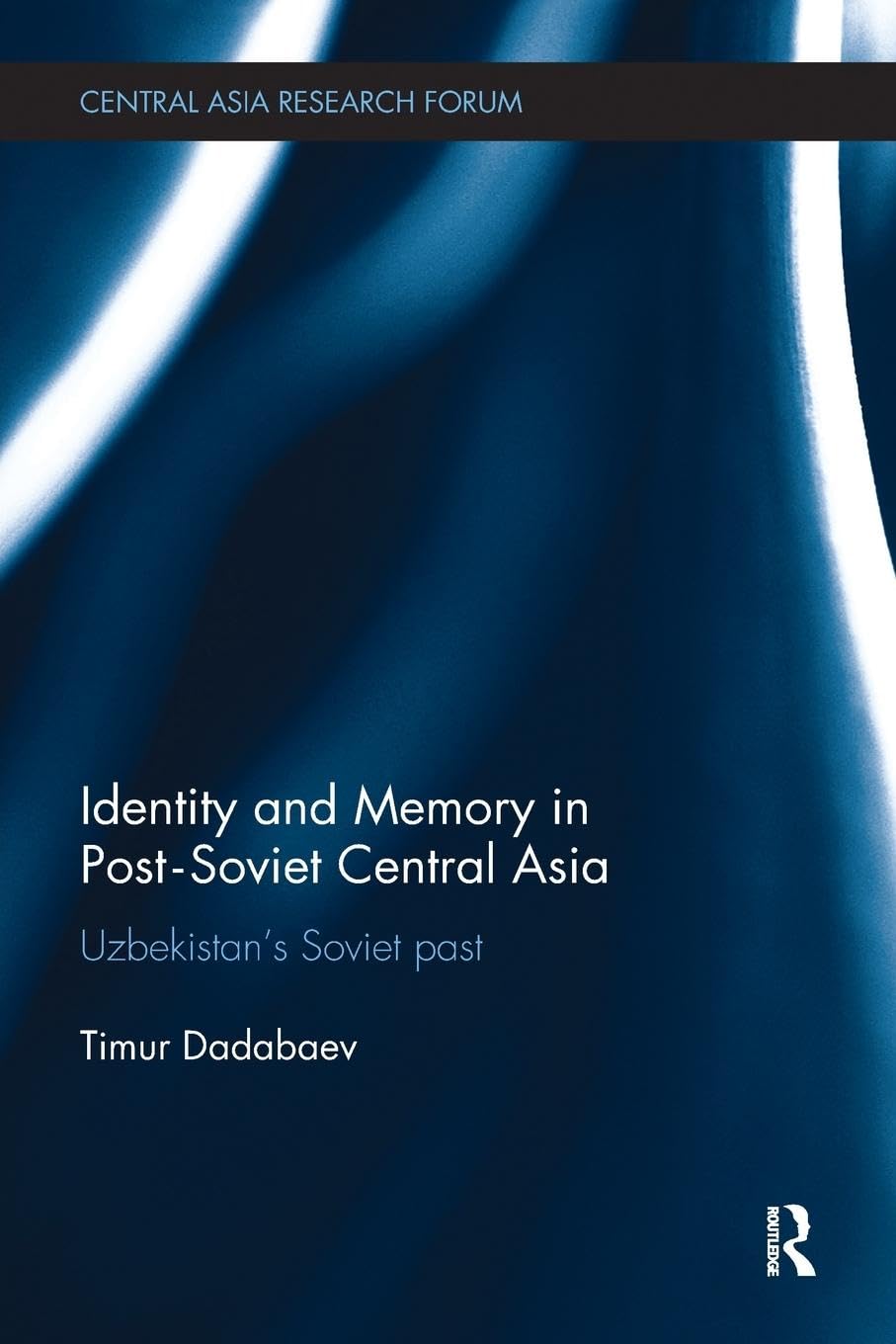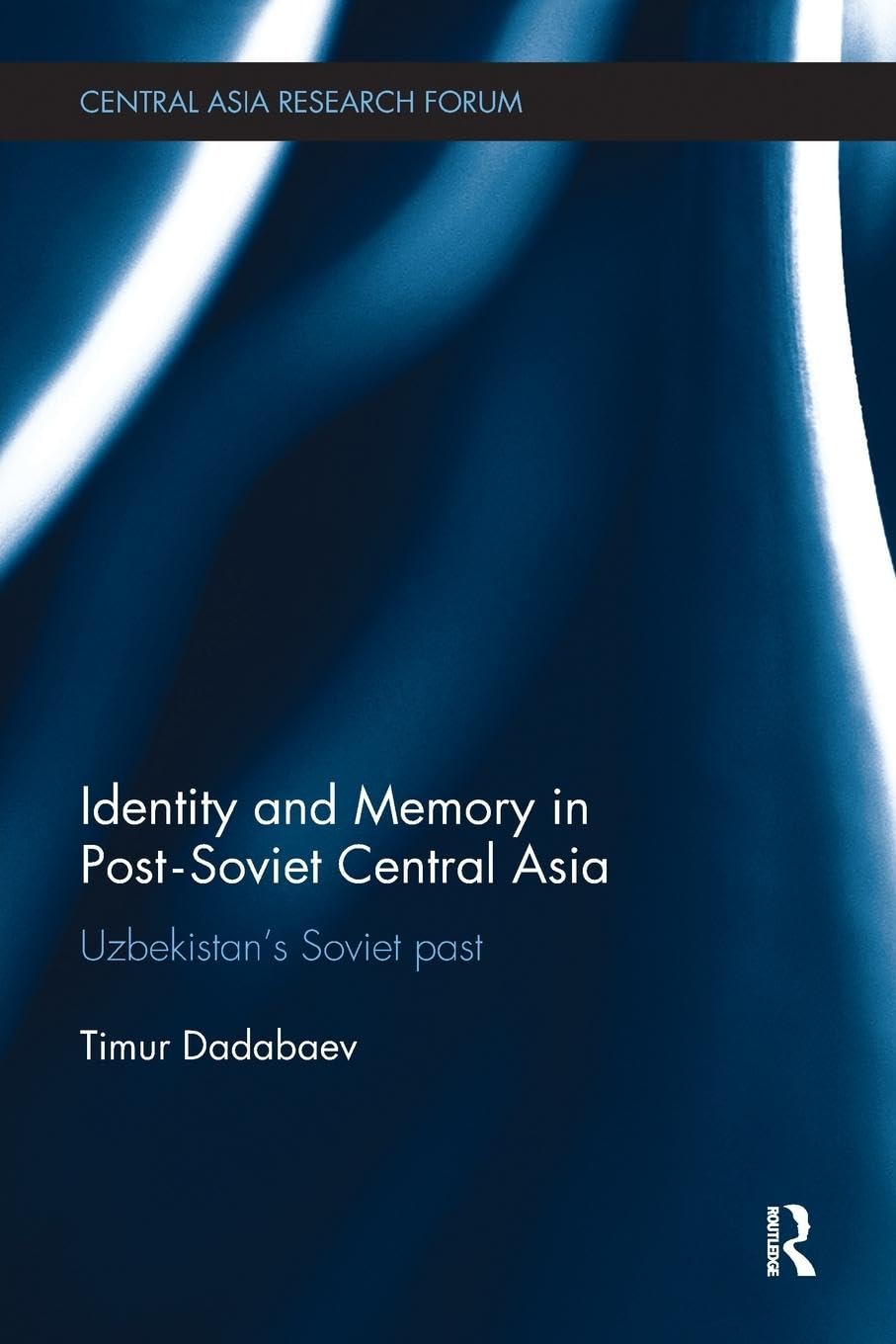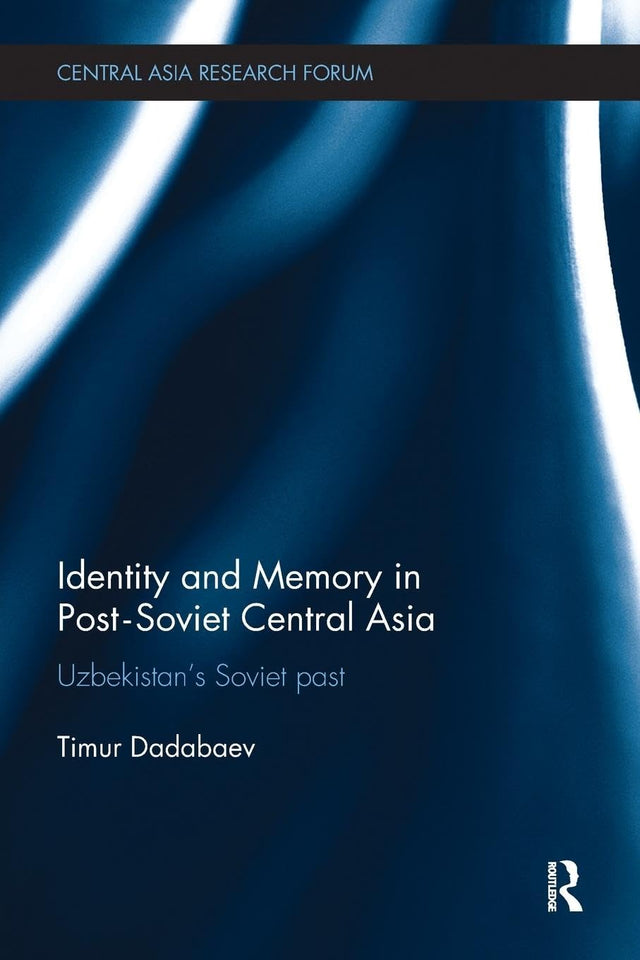Identity and Memory in Post-Soviet Central Asia: Uzbekistan's Soviet Past (Central Asia Research Forum)
Identity and Memory in Post-Soviet Central Asia: Uzbekistan's Soviet Past (Central Asia Research Forum) is backordered and will ship as soon as it is back in stock.
Couldn't load pickup availability
Genuine Products Guarantee
Genuine Products Guarantee
We guarantee 100% genuine products, and if proven otherwise, we will compensate you with 10 times the product's cost.
Delivery and Shipping
Delivery and Shipping
Products are generally ready for dispatch within 1 day and typically reach you in 3 to 5 days.
Book Details
• Book Name: Identity and Memory in Post-Soviet Central Asia / Identity and Memory in Post-Soviet Central Asia
• Format: Paperback
• Language: English
• ISBN-13: 9781138493353
• Author: Timur Dadabaev
• Edition: 1
• Publisher: Taylor & Francis Ltd
• Pages: 226
• Binding: Paperback
• Release Date: 22-01-2018
• Package Dimensions: 9.1 x 6.1 x 0.7 inches
• Subject/Category: Central Asian Studies, Ethnicity, Identity Politics
Overview:
Identity and Memory in Post-Soviet Central Asia explores the tradition of history construction in Central Asia, focusing on the region’s transformation following significant historical events, such as the 1917 revolution, Soviet incorporation, and post-Soviet independence. By collecting personal memories of the Soviet past in Uzbekistan, the author examines how these memories relate to official Soviet and post-Soviet descriptions of life during and after the Soviet era. The book discusses how the people of Central Asia reconcile their Soviet past through a three-fold process: recollecting everyday experiences, reflecting from the post-Soviet present, and re-imagining their past. The selectivity in memory construction highlights the way individuals recall aspects of the Soviet period in both positive and negative lights.
This work is an important contribution for students and scholars of Central Asian Studies, Ethnicity, and Identity Politics.





